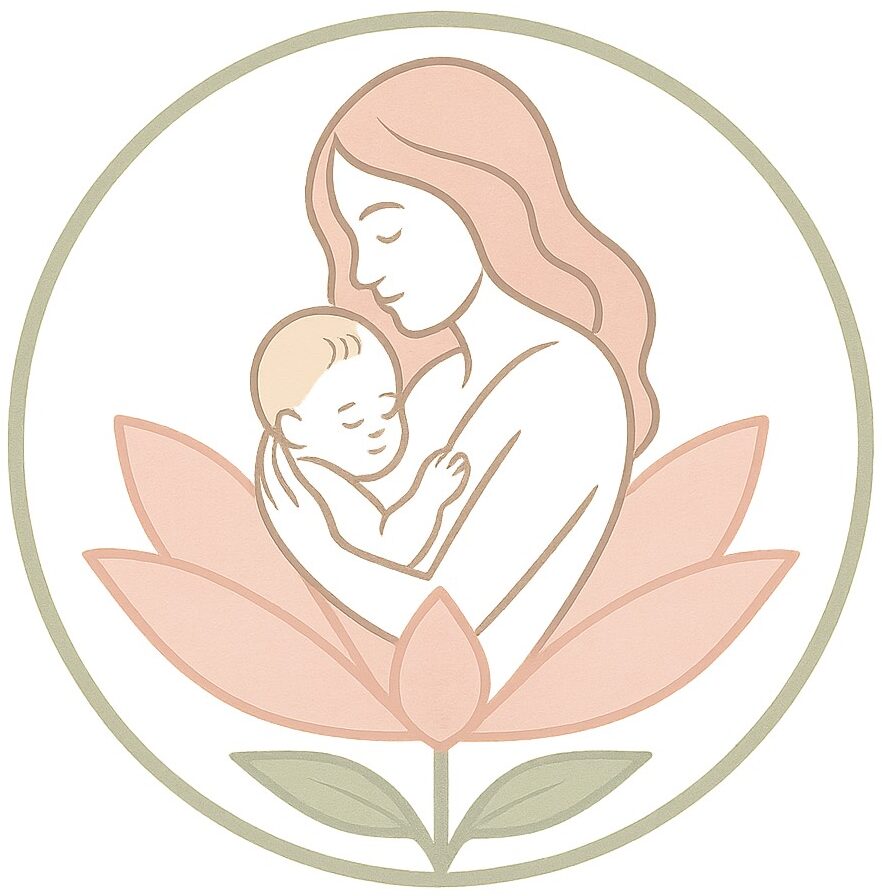Losing Identity in Motherhood: 7 Steps to Grieve Your Old Self
Read Time: 8 Minutes
When the sleepless nights merge into indistinguishable weeks, it’s common to feel that you’ve lost more than just rest, you’ve lost yourself. The moment you became a mother, the woman you were before did not just change; she completed her purpose. This profound sense of bereavement for the person you used to be is a core element of the transition to parenthood. If you are losing identity in motherhood, you are experiencing a form of legitimate grief that is often misunderstood and silenced.
Therefore, this isn’t a simple phase you can “snap out of” with a spa day or a quick coffee date. It’s the essential psychological and emotional process of integrating your past self with your powerful new role. This journey, often called Matrescence, requires compassionate attention.
In this comprehensive guide, we will validate the depth of this emotional landscape, explore the common symptoms of grieving your old identity, and, moreover, provide you with seven gentle strategies focused on acceptance, self-compassion, and the intentional acts of self-reclamation. This is how you honor the woman you were while confidently embracing your second birth.
I. Why “Losing Identity” Feels Like Grief (The Emotional Landscape)
The feeling of losing identity in motherhood is often mislabeled as simple fatigue or selfishness. However, the sadness you feel is real because you are genuinely mourning a loss of autonomy, freedom, and a self defined by different passions and responsibilities. This is compounded by biological factors: the brain physically restructures during Matrescence, shifting resources toward caretaking and protective behaviors, which naturally downplays former interests. This hormonal and neurological rewrite makes the past self feel genuinely distant.
The Symptoms of Identity Mourning
The emotional experience is complex, mixing overwhelming love and joy for the baby with sharp waves of longing for the past. Consequently, these indicators of identity mourning often surface:
• Disconnection from the Past: You might feel like your pre-baby memories belong to a different person; when old friends talk about past adventures, you struggle to connect with that carefree version of yourself. This is exacerbated by a feeling that no one outside of motherhood truly gets it.
• Role Confusion: When people ask, “What do you do?” you can only answer, “I’m a mom,” feeling that your personal accomplishments, career goals, and hobbies have completely vanished under the weight of primary caregiving. This singular identity can feel suffocating and limit your sense of worth.
• Resentment and Guilt: A deep well of resentment can build toward your partner, childless friends, or even your children for the freedoms they retain or the sheer time commitment you now face. In addition, this resentment is immediately followed by profound guilt, creating an exhausting emotional loop.
• The “Touch Starved, Touched Out” Paradox: You long for intimate adult connection and touch from your partner, yet you feel physically repulsed and exhausted by yet another demand for physical touch from your child. This physical and emotional depletion leaves you feeling alienated from your own body.
Ultimately, this grief can often trigger the larger Motherhood Identity Crisis [ Motherhood Identity Crisis Blog Post]. If you’ve been feeling the strain of these conflicting emotions, know that it is a natural and necessary part of this profound life transition.
II. 7 Gentle Steps to Bridge the Old Self and the New
The path to acceptance doesn’t require a dramatic, unrealistic transformation, but rather small, daily acts of acknowledging the present while honoring the woman you were.
1. Acknowledge and Validate the Grief
You cannot heal what you refuse to feel. Therefore, the first step is giving yourself explicit, permission to mourn the loss of your past life without layers of guilt or shame. This is not selfish; it is essential to moving forward. Don’t rush past the sadness in a rush to be “happy.”
• Actionable Tip: Name the Loss. Don’t diminish the feeling by generalizing it. Instead, sit with the sadness and articulate the specific loss: “I am grieving the loss of spontaneous weekend trips,” or “I miss the feeling of reading a book uninterrupted, and that’s okay to feel.” Acknowledging the specific loss reduces the overwhelming feeling of “losing everything.”
2. Reintroduce the “10-Minute Relic”
• External Resource: This is a true form of ambiguous loss, and accepting it requires the same emotional processing as other major life events. You may benefit from exploring resources on navigating major life transitions and grief [External Link: https://postpartum.net/get-help/loss-grief-in-pregnancy-postpartum/ Resource]. Furthermore, understanding the cyclical nature of grief (denial, anger, bargaining) can help you recognize and process the emotional waves as they hit.
One of the deepest reasons you feel like who am I now is because you stop doing the activities that once defined you. You need to reintroduce your personal self, even in tiny doses, without the pressure of performance or perfection.
• Actionable Tip: Choose one small hobby from your “old life” (a relic) that requires minimal setup—like playing an instrument for five chords, sketching for ten minutes, or listening to a specific genre of music with headphones on. Commit to engaging with it for just ten minutes, three times a week. Crucially, the activity must be done for joy only, not progress toward a goal.
• Conversely, this practice is a small, manageable rebellion against the tyranny of the urgent. It creates a tiny mental space that reminds your brain and spirit that the “old you” still exists within the “new you.” This micro-reconnection is powerful for mental well-being.
3. Dismantle the “All-or-Nothing” Mindset
The rigid idea that you must achieve 100% or you’ve failed is a hallmark of the perfectionism that fuels identity loss. When you only look for and celebrate huge milestones, you overlook the small, daily wins that prove your competence and goodness.
• Actionable Tip: The Three-Win List. At the end of each day, write down three things that went well, no matter how insignificant they seem: (e.g., “I successfully transferred the laundry,” “I laughed with the baby,” or “I sent a thank you text to a friend”). Do not write anything negative.
• Similarly, consistently celebrating these small, human wins shifts your brain’s focus away from chronic self-criticism and toward positive self-reinforcement. This reframing is essential for accepting that motherhood is about small, consistent efforts, not grand, perfect gestures.
4. Establish Two Non-Negotiable Boundaries
Boundaries are the containers that protect your identity and your energy. Without them, your role as “mother” will inevitably consume the person. You need to identify and hold two simple, clear boundaries that reclaim your autonomy.
• Actionable Tip: Define your “Me Time” and your “Task-Free Zone.” For example: “I get 30 minutes alone with coffee when I first wake up—no phone, no baby.” And, “I will not look at my work emails or clean the kitchen after 8 PM.”
• Furthermore, communicating these boundaries clearly to your partner and support system is paramount. When you state your needs, “I need this time to reset so I can be a present mother later,” you are treating your needs as necessary, not optional.
5. Reclaim Your Role as Partner, Not Just Co-Parent
The loss of identity often intertwines with the blurring of your relationship identity. You stop being a romantic partner or companion and become a co-parenting unit, focused only on logistics. This erodes your sense of self as a whole woman.
• Actionable Tip: Schedule 30 minutes each night after the baby is down that is explicitly non-parenting, non-logistics conversation. Talk about current events, memories, or hopes. Put a strict 5-minute limit on “business talk” (bills, appointments, diapers).
• In addition, protecting and nourishing your primary relationship is key to feeling seen as a whole, complex person, rather than just a functional mother. If you need more support connecting with your partner outside of co-parenting roles, read our post on How Partners Support are helpful [ Partners Support after Birth Blog Post].
6. Practice Self-Soothing and Grounding
When the internal critic attacks or the grief waves hit, you need practical, in-the-moment tools to bring you back to the present and treat yourself with kindness. The goal is to interrupt the negative thought cycle instantly.
• Actionable Tip: The Self-Soothing Break. When the internal critic attacks, pause and place your hand on your heart or face. Acknowledge the feeling with kindness: “This is hard, and I am a good mother, even when I struggle.” Then, engage your senses: notice three things you hear, two things you see, and one thing you can smell.
• You can find proven techniques for grounding and self-compassion here [External Link: https://self-compassion.org/self-compassion-practices/ Resource]. Ultimately, this radical act of self-kindness reminds you that you are worthy of support, especially from yourself.
7. Create a “Future Me” Vision Board
Stop dwelling on the grief for your old self and start intentionally focusing on the powerful identity you want to build. The transformation is forward-looking. This is not about going back; it’s about expansion.
• Actionable Tip: Create a simple board (physical or digital) that represents your current core values, plus three things you want to achieve in the next year that are purely for you (e.g., take a pottery class, start a small business, run a 5K, or read 12 books). Do not include any images of your children.
• Consequently, this shifts your focus from mourning the past to actively manifesting the powerful, expanded woman you are becoming. This is the forward momentum that defines your second birth.
III. Your Second Birth Awaits
The loss you feel is valid, but the story doesn’t end there. Losing identity in motherhood is merely the painful prerequisite to the beautiful, expansive identity of your second birth. You are stronger, deeper, and more resilient than you know.
If you are ready to stop grieving the past and start intentionally building a powerful identity you love, professional guidance can help bridge that gap. You deserve to feel whole again.
Don’t wait to rediscover your whole self. Book a Session with me today to begin your journey of self-acceptance and redefinition.


